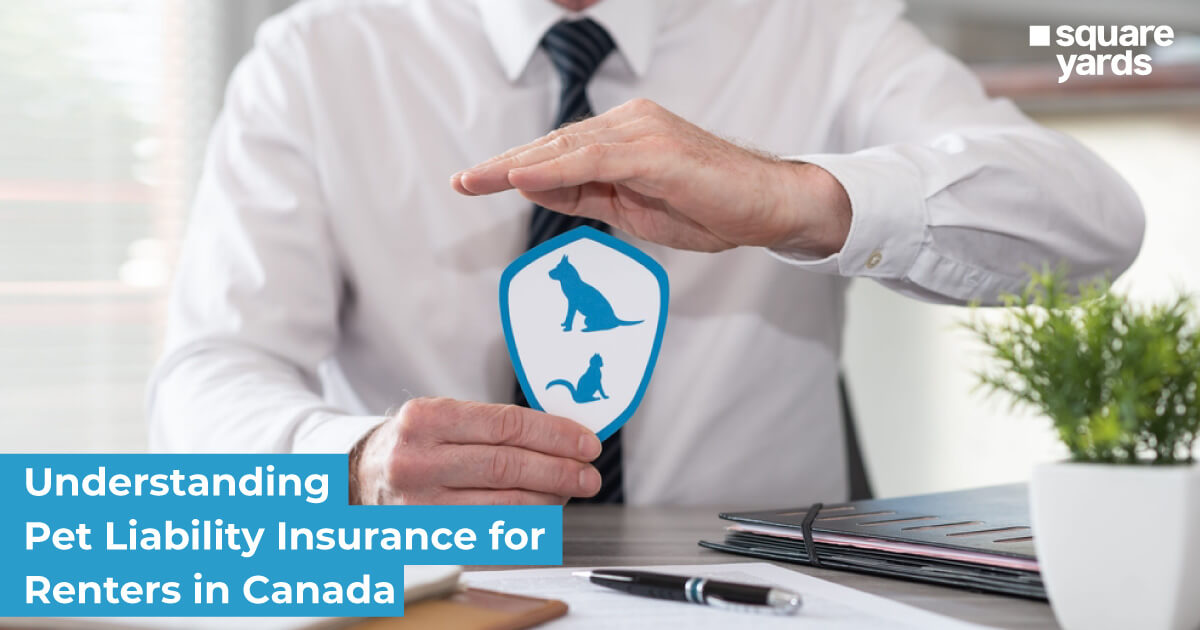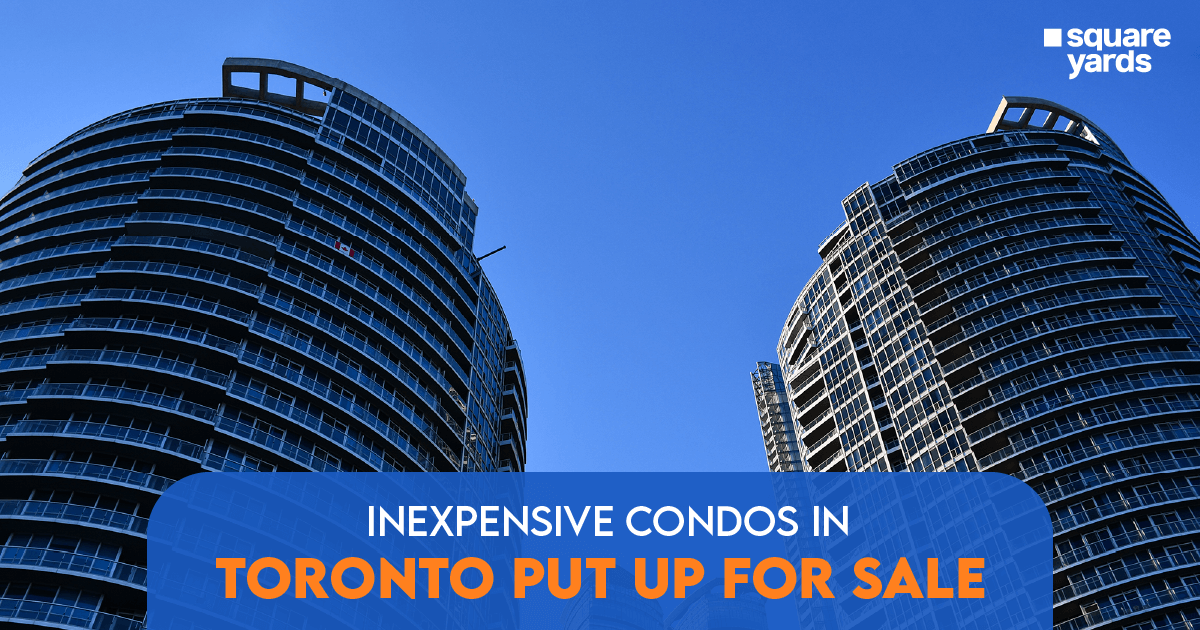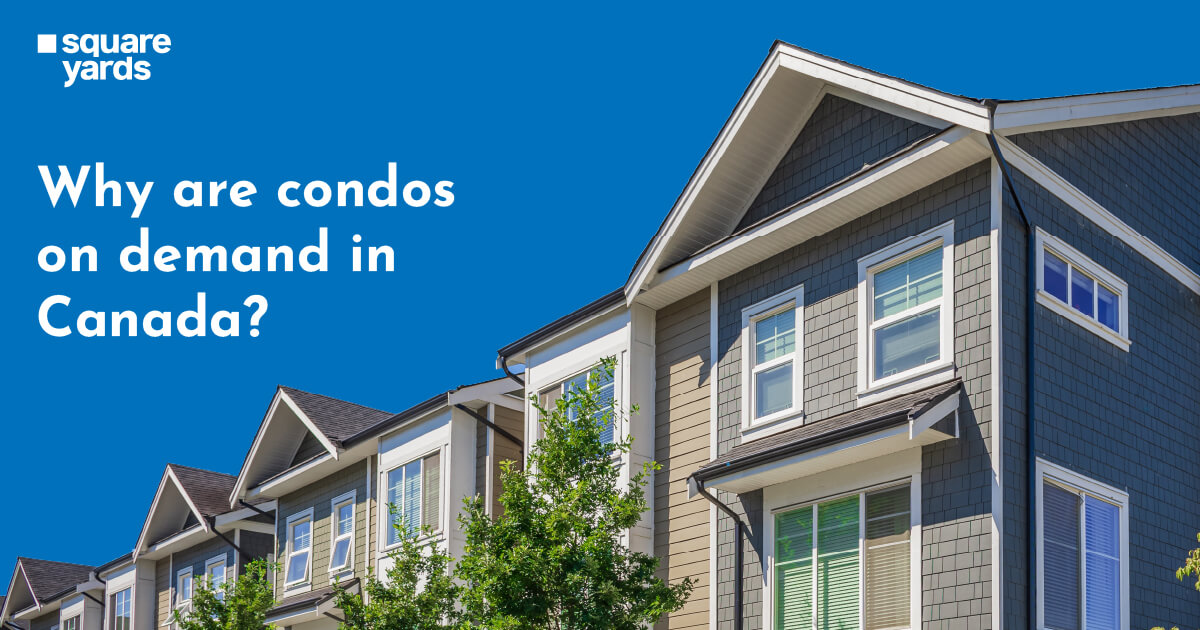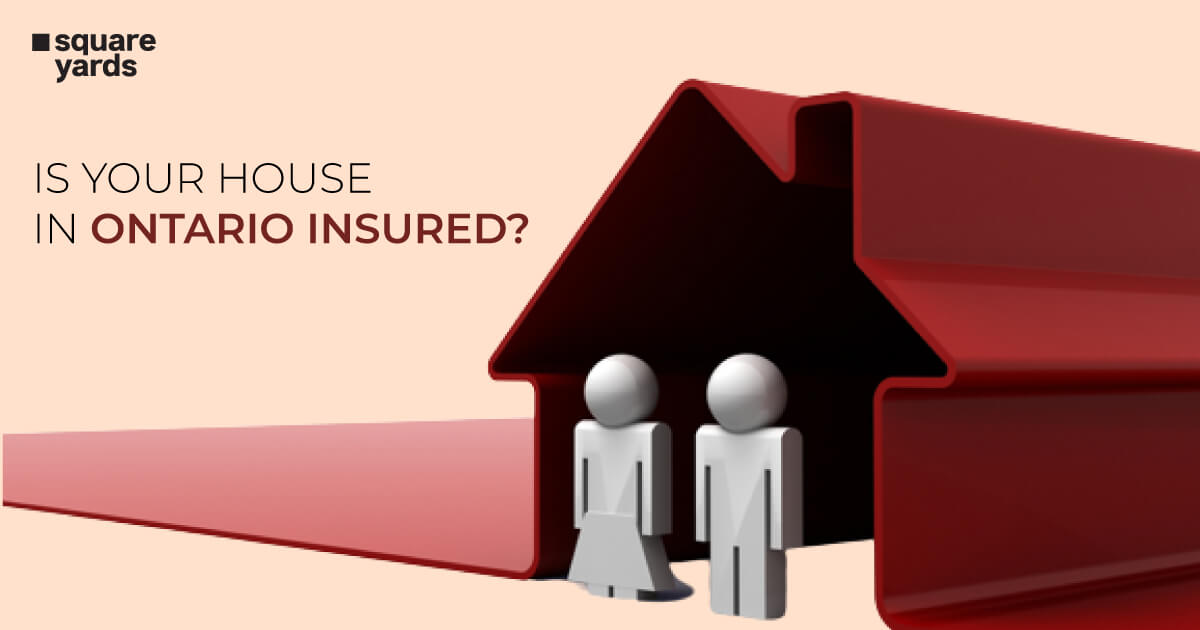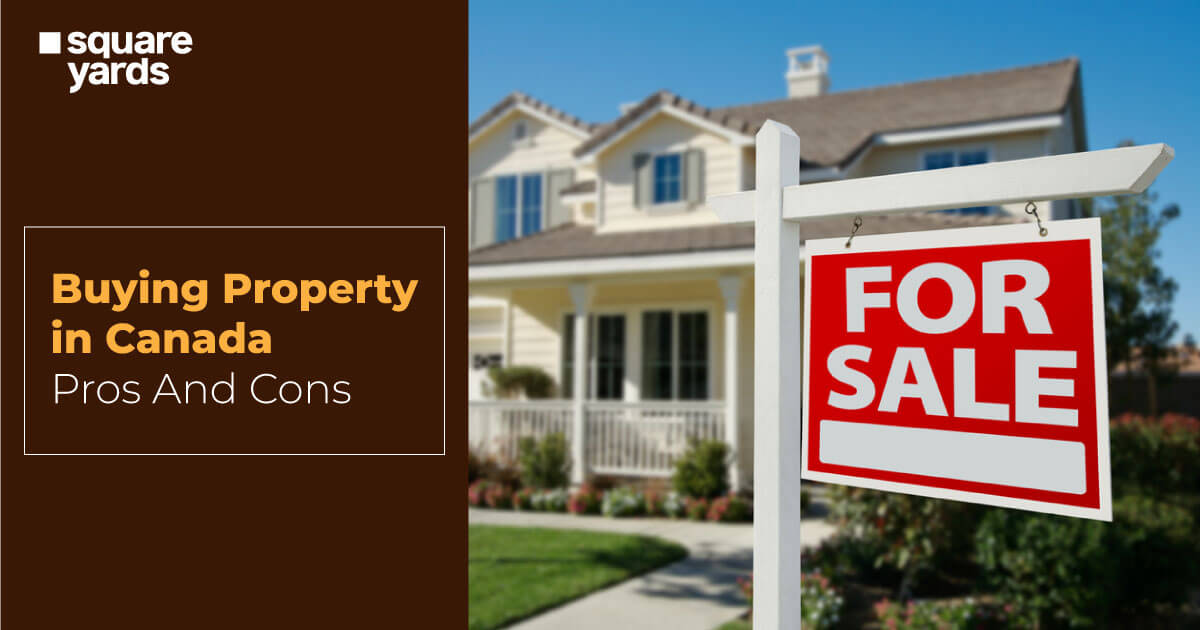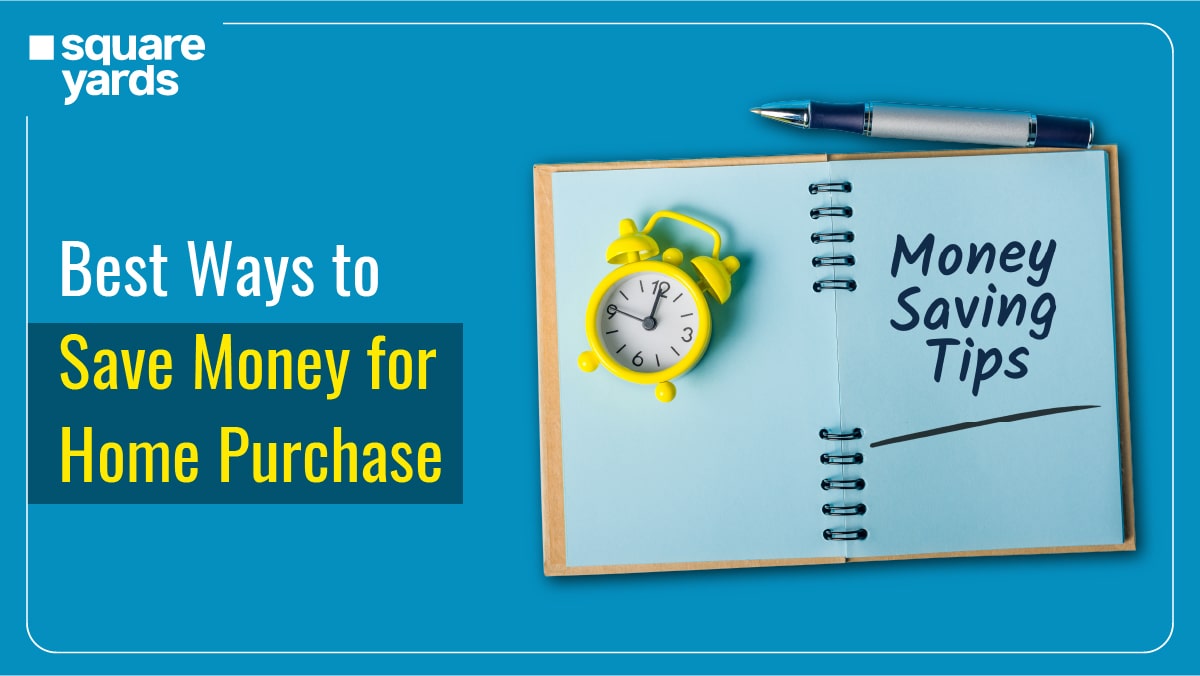Despite market uncertainty, a new survey found that real estate is one of the top assets selected by most Canadians in 2024. Many Canadians are drawn to real estate investing because it historically provides stable returns, unlike other investments like equities. It also serves as a hedge against inflation. It is an excellent option to bring in income if you rent or resell it. The buying process for it, however, can be complicated. But before you step into the buying process, it is important to understand the basics. This blog covers everything you need to know about Canada real estate investing, its types, and more. Our guide will help you make better property decisions and assess your readiness for such an investment.
Without further ado, let’s get started.
What is an Investment Property

An investment property is a property purchased to earn an ROI. This return on investment can be in the form of monthly rentals, future resale, or both. An individual, a group of investors, or a business enterprise can own it. It is also referred to as a second home by those already owning a primary residence. For example, a family might buy a cottage for personal use, or someone with a city home could buy a country property for weekend getaways. In these cases, the second property is for personal use, not income generation.
Types of Investment Properties in Canada
You need to choose an investment property that fits your budget and requirements. To make the right choice, you first need to know the types of investment properties available, which include:
Residential Property
This is the most common investment property type, where investors rent to tenants and collect monthly payments. It can include single-family homes, apartments, condos, townhouses, or similar properties.
Commercial Property

Investors often choose commercial properties despite the higher maintenance costs. These properties, like apartment buildings or retail stores, tend to bring higher returns.
Mixed-Use Property
A mixed-use property is a combination of residential and commercial property used for both purposes. For example, a building with a retail store on the ground floor and residential units above.
Off-Plan Properties
Off-plan property is one still in the development or planning stage. You invest in it because of the potential capital growth attached to it. These properties are available at lower costs than newly built or established ones.
Refurbished Property
Historical or old properties that are revamped or refurbished fall under this category. They are redesigned to meet modern-day requirements. Investors who appreciate character and unique architecture often choose these.
Raw Land
Buying raw land or new constructions can diversify portfolios. Both options offer opportunities for high returns in growing areas.
Know If You Are Ready to Buy an Investment Property
The buying process for an investment property differs greatly from that of a normal property. Therefore, you must meet the following criteria before diving into real estate investing in Canada:
Financial Stability
Purchasing an investment property requires greater financial stability than a primary home. Lenders look for investors who can pay at least a 15% down payment for investment properties. This percentage isn’t needed for your first home, but investment property owners must also get their properties inspected in different conditions. Additionally, inspections, repairs, and other upfront costs should be accounted for. Tenants expect repairs to be done promptly, and maintaining trust is crucial.
An investment property has many more expenses before and after the tenant moves in. Marketing, tenant screening, and credit checks are required to find reliable tenants. Good tenants will protect your investment, while bad ones can result in unexpected expenses.
ROI (Return on Investment)
In today’s market, investors often witness a positive cash flow with their properties (investment). The experienced ones calculate an approx. ROI before buying a property. They use the following steps for the same:
-
- Assess Annual Rental Income : Look for similar properties available for rent. Calculate the average monthly rent and multiply that amount by 12 to determine a year’s income.
- Net Operating Income : First, estimate your yearly potential rental income and then calculate the net operating income. Subtract your operating expenses (property maintenance, taxes, etc.) from your rental income to get the net operating income. Interest or mortgage are not included in net operating expenses.
- Determine your ROI : Divide your net operating income by the mortgage value to determine your ROI. For instance, if you buy a property worth $300,000, you can rent for $1,500 monthly. To calculate your potential income, multiply 1,500 by 12, and you will get $18,000. Assuming the property tax is $600, the annual operating expense would be $7,200. Now, subtract the operating expenses from the overall potential rent: $18,000-$7,200 = $10,800 (net operating income). Then, divide the net operating income by the overall mortgage value to get the ROI percentage.
Property Management Time
Managing an investment property is time-consuming. You need to spend money on advertising, interacting with potential tenants, and checking the backgrounds of potential tenants to make sure you choose reliable people. Your responsibility also includes performing regular inspections and making repairs from time to time in case anything goes wrong. Additionally, you need to ensure the tenant’s “right to privacy” is not violated. An investment property will take up a lot of your time. Your schedule will be packed on some days, so ensure you have plenty of time to maintain the property.
Investment Property Mortgages in Canada
When purchasing an investment property, consider the number of units in the building. Most buildings have one to four units (zoned residential), which makes the buying process similar to that of a principal residence. Buildings with five or more units are zoned commercial. This means that the lender requires you to apply for a commercial mortgage. This mortgage type has difficult qualification criteria and higher interest rates.
In the case of a multi-unit property, you need to consider whether you (the owner) will be living in one of the units. If you plan to live in one, the property will be termed ‘owner-occupied’. However, if you do not intend to live in any unit and simply want to rent them out, the property is “non-owner-occupied”. Both properties require you to pay a difference:
-
- Down Payment
- MAP (Maximum Amortisation Period)
- Mortgage Default Insurance
Down Payment and Maximum Loan to Value
The loan-to-value (LTV) ratio shows the percentage of a property financed by a mortgage. It is calculated based on the mortgage amount compared to the home’s price or appraised value. LTV helps determine how much of the house a mortgage covers, the interest rate, and if insurance is needed. A high LTV may require mortgage insurance, while a low LTV does not. As you pay off your mortgage or your property’s value increases, your LTV decreases, and your equity grows.
To calculate the LTV ratio, divide the mortgage amount by the lower purchase price or the property’s assessed value. Here are some examples:
20% LTV
A 20% LTV means the loan covers 20% of the property’s value. For a new mortgage, you paid 80% as a down payment. In a renewal or refinance, you have 80% equity. For example, if you bought a home with a $500,000 mortgage and have $100,000 left to pay, you’ve paid off $400,000, which is 80%, making your LTV 20%.
Calculation: $100,000 (remaining mortgage) / $500,000 (property value) = 20%.
30% LTV:
A 30% LTV means the loan covers 30% of the property’s value. For a new mortgage, you paid 70% as a down payment. For a renewal or refinance, you have 70% equity in the property. For example, if your mortgage was $500,000 and $150,000 is left to pay, you’ve paid off $350,000, which is 70%, so your LTV is 30%.
Canadians have been paying 20% down payment on non-owner-occupied investment properties since 2010. Look at the chart below to learn about the minimum down payment that non-owners and owners are required to pay:
| No. of Units | Owner/Non-Owner Occupied | Down Payment (In Percentage) | Maximum Loan to Value |
| 1 to 2 | Owner Occupied | 5% | 95% |
| 1 to 2 | Non-Owner Occupied | 20% | 80% |
| 3 to 4 | Owner Occupied | 10% | 90% |
| 3 to 4 | Owner Occupied | 20% | 80% |
As the table depicts, a non-owner-occupied investment property requires a minimum 20% down payment. However, if you live in one of the units, the down payment will decrease to 5-10%, as per the overall property units.
Since February 2016, if the buying price is more than $500,000, the minimum down payment for owner properties has been 5% of the first $500,000 and 10% of any more than $500,000.
Latest Housing Market Trends
Make sure you select a property that increases in value over time. You need a lot of experience and understanding to determine which place will be fruitful in the future. For beginners, keeping an eye on the latest market indicators is essential. It allows you to compare different rental trends and prices of previously bought properties in a specific area. Let’s have a look at the latest housing market trends.
According to a recent report, in July 2024, the average selling price of homes in Canada dropped compared to the previous month. Home prices fell by 3.9%, and Single-family homes saw a 3.7% decrease. Townhouses and multiplexes decreased by 3.6%, and Condos dropped by 3.2%. However, rents increased, and the average rent increased by 7.0% compared to the previous month.
Buying an Invested Property with a Partner
Buying a property with a partner can be a great idea. You can split the costs, maintenance fees, and repairs, so you’re not handling everything alone. It also means sharing any profits and legal responsibilities with your partner.
Let’s understand this with an example :
-
- If your tenants report a pest problem to your partner and it’s not fixed on time, they can sue both of you. Legally, you and your partner are responsible for maintaining a safe living environment.
- If you’ve split the property cost equally, you and your partner are legal owners. Choose someone reliable and proactive in managing the property so you’re not left handling everything alone.
What About Property Taxes? How Much Will They Be?
Homeowners pay property taxes to support local services like fire departments, schools, and public projects. The tax amount is based on your property’s value—a higher value means higher taxes. Local governments set these taxes, so they vary by location. A real estate agent or mortgage broker can help estimate your property tax, but the amount may differ due to various exemptions.
Is Hiring a Property Management Company a Good Idea?
You can hire a property management company if you don’t think you can manage your property repairs independently. They will manage the maintenance daily and ensure the existing or potential tenants have no complaints.
As professionals, property management companies accept repair calls of all kinds, whether scheduled or emergency. Once you hire them, they keep a regular check on your property & schedule visits to make sure your tenants are also treating your property with respect. Property management companies take care of many tasks for you, such as:
-
- Collecting rent
- Handling maintenance issues
- Promoting the property
- Keeping records
How to Apply for an Investment Property Loan?
Applying for a mortgage on an investment property differs from applying for a loan or mortgage on a personal home. These include –
Down Payment
-
- Personal Home: You can pay as little as 5% down, especially for first-time homebuyers.
- Investment Property: Requires a higher down payment, typically 15-20%.
Interest Rates:
-
- Personal Home: Interest rates are usually lower as the risk is less.
- Investment Property: Lenders charge higher rates due to the higher risk involved.
Loan-to-Value Ratio (LTV)
-
- Personal Home: You can borrow up to 95% of the home’s value.
- Investment Property: Lenders often limit borrowing to 80% of the property’s value.
Income Requirements
-
- Personal Home: Lenders focus on your primary income and ability to repay the loan.
- Investment Property: Lenders assess rental income potential and your financial stability more rigorously.
Mortgage Insurance
-
- Personal Home: You may need mortgage insurance with a down payment of less than 20%.
- Investment Property: Typically, mortgage insurance is not available for investment properties.
These factors make investment property loans more stringent compared to personal home loans.
Other Financial Requirements for Real Estate Investing
Before securing a mortgage for an investment property, it’s crucial to meet specific down payment and pre-approval conditions, which differ from those for a primary residence.
Down Payments
If you have a mortgage on your home, you may already know that lenders no longer ask for a 20% down payment. They are strict about loans for investment properties, as the risk attached to these properties is higher. A Fixed-Rate Mortgage for a one-unit investment property generally requires a minimum 15% down payment and a credit score of 620 or more.
Pre-Approval
Getting a mortgage pre-approval before house hunting is essential, as it shows what you can afford. Pre-approval requires submitting financial details and provides a tailored mortgage solution. Preapproval is more detailed and reliable than pre-qualification, which only estimates your eligibility.
To Conclude
Real estate investing in Canada remains attractive, even with market fluctuations. Canadians see it as a reliable way to earn stable returns and hedge against inflation. Whether through renting or reselling, real estate offers significant income potential. Research properties, assess your financial stability, and be ready to manage the property to ensure success in the real estate market.
Frequently Asked Questions (FAQs)
Yes, buying investment property in Canada is possible. It is one of the most popular options for residents who want to invest money and make greater profits.
A foreigner can invest or buy a property in Canada and even give it on rent if they pay timely taxes for it. In Canada, gross rent of 25% is withheld for taxes for non-residents collecting rent.
An investment property requires you to pay a large down payment. You must pay a minimum down payment of between 20% and 25%.
Applying for a mortgage requires you to submit basic personal information. This may include at least two years of tax returns, 2 months of bank statements, and 2 years of W-2s as proof that you have enough money to cover payments.
Yes, buying an investment property without money is possible. If you do not have any cash on hand, you can tap into the equity in your primary home. Is it possible to purchase an investment property in Canada?
I am a foreigner. Can I invest in property in Canada?
How much down payment will I have to pay for an investment property?
What other documents must I submit to apply for an investment property mortgage loan?
Can I buy an investment property without any money?


